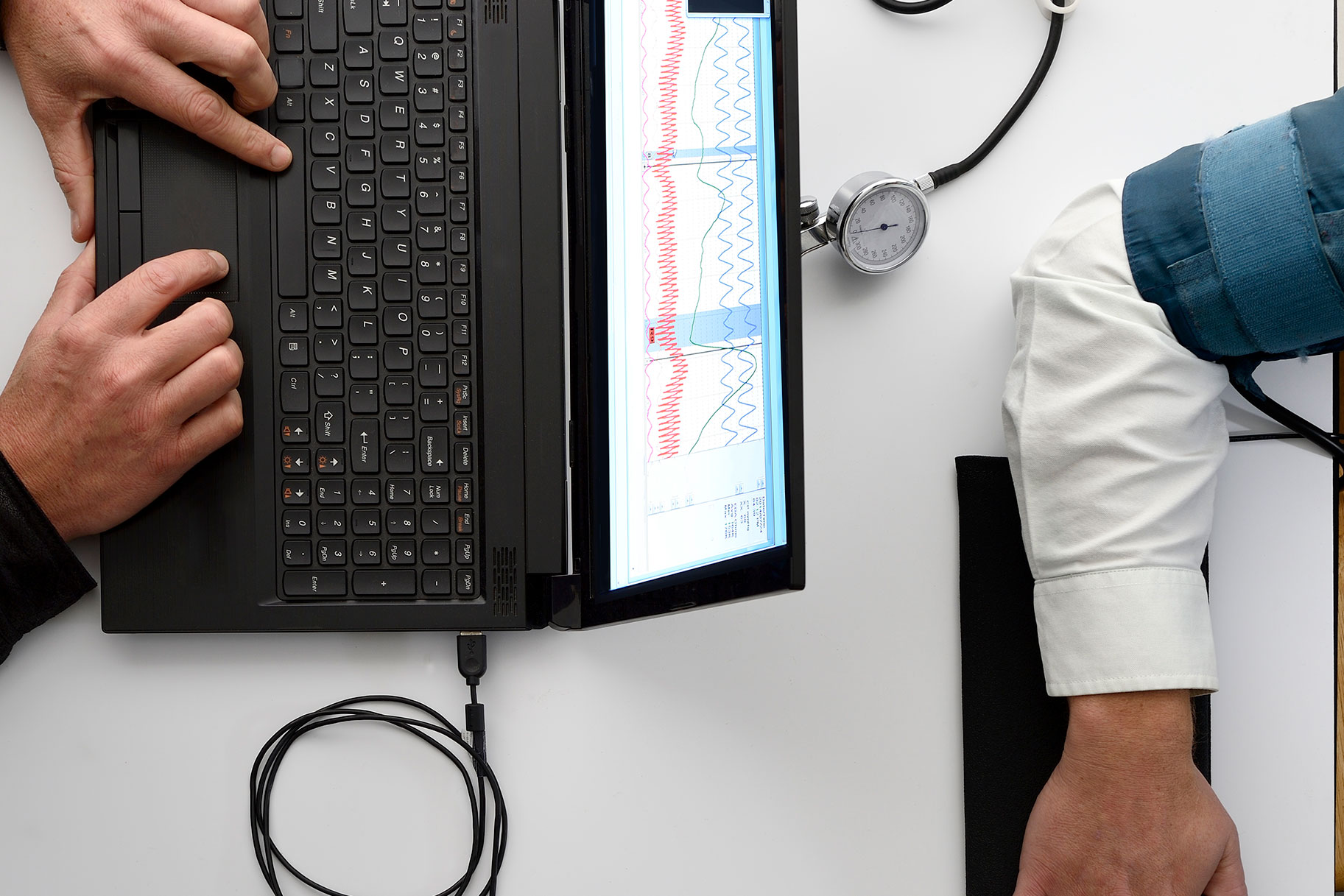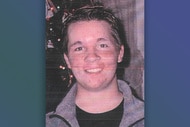Create a free profile to get unlimited access to exclusive videos, breaking news, sweepstakes, and more!
How Can You Tell If Someone Is Lying To You?
Natasha Lyonne's character in Peacock's "Poker Face" has an innate ability to root out deception. How can the rest of us do better?

How do you know when someone is lying to you? Well, if you’re Natasha Lyonne’s character in the new Peacock murder-mystery series “Poker Face,” it’s easy. Just use your innate clairvoyant abilities.
Lyonne plays Charlie Cale in the Rian Johnson-led series, which debuts on Peacock Thursday, Jan. 26. Her supernatural talents essentially make her a human lie detector, and the series charts her adventures as she makes her way across the country, encountering a “new cast of characters and strange crimes she can’t help but solve” along the way, according to Peacock. (Check out the trailer below.)
But what about the rest of us? Distinguishing a lie from the truth is a complicated task that can often get muddled by what we want to be true. However, experts say that although it isn't easy, there are certain verbal and non-verbal cues that can help assess whether someone is telling the truth or simply peddling a tall tale.
Remember That Detecting Deception Isn't Easy
Without knowing what to look for, distinguishing a lie can be difficult and the odds of detecting whether someone is lying are really no better than a coin flip, according to Wendy L. Patrick, author of the book "Red Flags: Frenemies, Underminers, and Ruthless People."
"Most people just can't tell, even sometimes people with a lot of training," she told Oxygen.com.
While there are signs that may indicate deception, these signs taken on their own may not really reveal anything about the speaker's motivations. Pamela Meyer, the author of "Liespotting," told Oxygen.com that detecting deception can't be done just by detecting one or two clues, but is a process of gathering "clusters" of signals that could indicate deception and using them to create a larger picture.
"It's not a parlor trick, it really does require that you confirm your facts and you do your research and you go to original sources and you make sure that in more ways than just observing someone's behavior, you confirm what you think might be your hunch," she said.
It's easiest to discern a lie if you know how the person normally acts, or what experts refer to as their baseline.
"It's incredibly helpful to know the person, in terms of their life history to the extent that you can, to know about the facts and the situation that you are talking about and to know the baseline of how that person behaves when he or she tells a story," David Matsumoto, professor of psychology at San Francisco State University and the director of Humintell, a company specializing in training security professionals on detecting deception, told Oxygen.com.
Even if you don't have a long prior history with the person, Meyer recommends starting the conversation by asking routine questions about the person's day, family, or activities to learn more about their normal habits during conversation.
"You want to baseline someone, you want to look at their blink rate, and their posture and their hand gestures, their leg gestures and their vocal speed, volume pitch, the laugh, the style and duration of their laugh," she said. "You want to know what their norm is, so that you have a reliable reference point really for measuring those changes later."
People likely have already established baselines for people they know well, but experts say that extensive knowledge of someone doesn't necessarily translate to better lie-detecting because someone's personal bias can also factor into their assessment of whether someone is being truthful.
"The problem with familiarity is if you already know the person, then your relationship with the person may have an override," Paul Ekman, who wrote the books "Telling Lies" and "Emotions Revealed," told Oxygen.com. "Who wants to believe that their children are lying to them? Who wants to believe that their spouse of 10 years is lying to them? Who wants to believe that their sibling is lying to them? So, there's, I think, those factors that all make it not as useful as you think it might be to already have a relationship with the person."
The context of a given situation, including whether a person is nervous, embarrassed or uncomfortable, can also alter their behavior and make it difficult to discern whether they are lying or just trying to mask another emotion.
"There are a lot of emotional states that mimic dishonesty," Patrick noted. "One of them is nervousness."
First Signs of Concealment
Ekman, whose research and expertise inspired the 2009 television show "Lie to Me," believes the only "context-free" sign of concealment occurs during what he referred to as a micro-facial expression. These short facial expressions occur immediately and are usually only about 1/25th of a second.
Ekman said these involuntary expressions reveal the true emotions a person may be trying to conceal, whether that concealment is conscious or unconscious.
There can be many reasons a person is choosing to conceal their emotions. It could be something as simple as they don't want to burden the other person with their true feelings. Still, Ekman said it's important to note any discrepancies between their initial expression and what they're saying.
"The fact that someone is concealing an emotion from you that you spot from a micro-expression doesn't tell you the motive, but it does tell you've got something you've got to try to find out what the motive is," he said.
About 5 percent of the population Ekman has studied don't show micro-expressions, but the majority do, he said.
He believes anyone can learn how to read these expressions, and offers training on his website to teach others how to spot and interpret them.
Deciphering Fidgeting And Other Non-Verbal Clues
A common myth is that fidgeting indicates a person may be lying, but Patrick said significant research actually shows that because lying is cognitively difficult, people actually tend to move less when they are concentrating on the lie.
To uncover a lie, investigators often try to increase the "cognitive load" on a suspect by having them recite their story in reverse order, surprise them with unanticipated questions after getting the initial account, or surprise them with another interview session.
"They try to do things that make it cognitively even more difficult and then they believe they are better able to pick up signs of dishonesty," Meyer explained.
Meyer said other non-verbal clues, like a huge postural change or suddenly stiffening up, can also indicate possible deception.
"Often times what we see is someone kind of unconsciously trying to leave the situation," she said. "They may lower their voice, slump into their chair, look down, turn their feet curled inward (or) point toward the exit," she said.
Another sign to watch for is if someone places a "barrier object" like a backpack or cell phone between themselves and the person questioning them. This can be a sign they maybe aren't being truthful.
If it's a low stakes lie, smiling can indicate honesty, but in a high stakes lie, like the whereabouts of a missing person, smiling can indicate deception.
"In general, when you smile and it's authentic, your whole face smiles," Patrick said. "I call it the credibility of crow's feet. You know, crow's feet are a beautiful thing if you are deciding whether to trust someone."
However, nonverbal behaviors — like an asymmetrical shrug, looking down, or grooming gestures — are often most significant when they conflict with the words someone is saying.
"Watch their facial expressions and try to see whether the facial expressions that they are showing when they are talking match with what they are talking about or not," Matsumoto said.
Looking Out For Verbal Tells
There are also verbal signs, that when taken in clusters, could indicate a person isn't being honest.
For instance, Meyer said people who use qualifying language like "to tell the truth" or "in all honesty" or bolstering statements like "I certainly did not do that" or "I swear on my mother's grave," may not be telling the truth.
"An uncooperative or dismissive attitude can often times signal that somebody may not be telling you everything," she explained.
Another sign to look for is when someone has a strong objection to a specific irrelevant detail, for instance insisting they had the chicken rather than the steak when the discussion was really about a much more serious topic.
"Another verbal tic to look out for? "Liars are more likely to repeat words, phrases and details," Meyer noted.
Research has found that people who are displaying false remorse often also have more speech hesitations than those expressing genuine feelings, she said.
Handling Expert Liars
Experts agree that some people are just better liars than others.
"People with psychopathic traits are often known to be better liars because they lack the moral compass that most of the rest of us have that causes guilt and discomfort," Patrick elaborated.
Research has also shown that extroverts may lie more fluidly than introverts, although that isn't always the case, Meyer said.
If you find yourself trying to decipher someone's truthfulness, Ekman told Oxygen.com the bigger question may be what actually caused you to begin to question their motivations in the first place.
"Why are they concerned with truthfulness? Is that so with everyone or is that just so with this person? It that always with this person or just now?" he questioned. "Why are you maintaining a relationship with someone you don't trust?"
One of the easiest ways to invite honesty into your life, Meyer noted, is by finding simple ways to let others know your moral code, whether it's hanging the 10 Commandments on the wall or frequently talking about honesty and integrity.
"The people who don't like that will self select themselves out, so it's a sort of subtle way of weeding the garden," she said.
You can stream the first four episodes of "Poker Face" on Peacock Thursday, Jan. 26, with the remaining six episodes dropping every Thursday.














